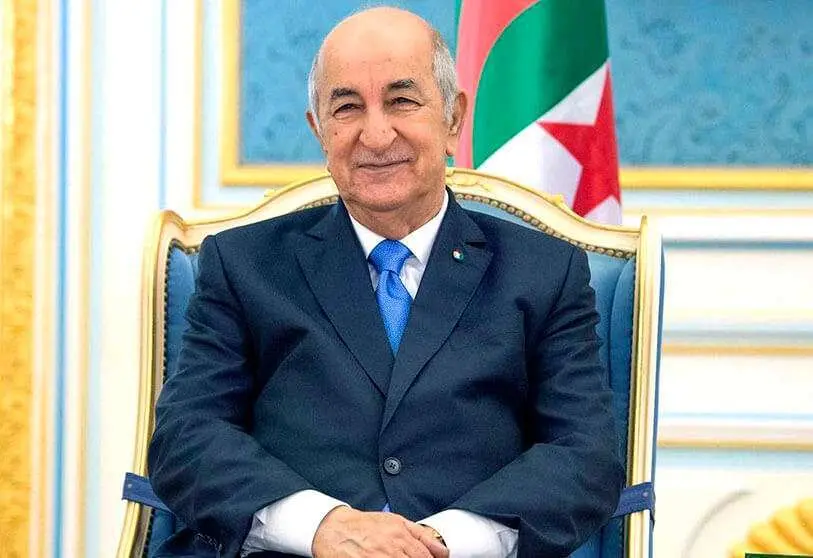Algerian President Tebboune wants to remove the Sahara file from the military

Algerian President Abdelmadjid Tebboune has decided to create the Algerian Agency for International Cooperation (AACI) and has put a colonel who made his career in the secret services, Mohamed Chafik Mesbah, at its head.
The presidential initiative has two aims, to take away control of foreign policy from the military and their spying services and to create conditions so that Western Sahara and the political and strategic crisis in the Maghreb region become the prerogative of the Presidency of the Republic.
Since the beginning of the anti-colonialist war of independence, the foreign policy of the successive Algerian governments, the provisional government (GPRA) presided over by Ferhat Abbas until the country's independence in 1962, and the successive executives who have succeeded him, with the exception of the absolutist military regime led by Colonel Huari Bumedián between 1965 and 1979, the date of his death, has always been the exclusive prerogative of the National Liberation Army (ELN) and its institutional heir, the National Popular Army (ANP). The Ministers of Foreign Affairs and even the Department of Foreign Affairs of the single party National Liberation Front have limited themselves to executing orders from the Army and its intelligence services.
The heads of Algerian diplomacy, ambassadors, and the heads of all state bodies whose tasks are linked to foreign policy, exports, contracts, the acquisition of equipment or representation in international organisations, in order to be appointed, must have a certificate of competence issued by the secret services, which is always in the hands of the military.
This was the case until the end of the Bouteflika era. The new president, although elected by a Pyrrhic minority, has taken a surprising step by setting up the Agency, whose purpose is to design Algeria's political and diplomatic strategy. Until now, Algerian presidents have been held hostage by the military, and had no power to define their foreign policy, even though the Constitution grants them that and many other discretionary powers.
One of Algeria's problems, which is linked to its foreign policy, is undoubtedly the conflict in the Sahara, in both its geopolitical and military aspects. In the strictly military area, which includes border defence, troop deployment and military interplay in the region, mainly between Algeria and Morocco, President Tebboune does not have the power to intervene, at least for the time being, despite being the supreme head of the armed forces and Minister of Defence. On the other hand, where he can and, it seems, is willing to do so, is on the political side of the conflict.
One of the main tasks of the new institution, the AACI, will be to present the President of the Republic with a detailed political and strategic report on the conflict and its future scenarios.
The fact that the head of the AACI is a former colonel of the secret services also has a double reading. Colonel Chafik Mesbah belongs to an elite group of new members of the Bumedian-era secret services: people with a solid university education, academic qualifications, knowledge of several languages, experts in economics, sociology and political science. This new elite class was recruited by Colonel Kasdi Merbah, who for 20 years following Independence in 1962 built the backbone of the secret services and later held various ministerial posts, even going so far as to preside over the government, before being assassinated in 1993 in Algiers by a falsely Islamist commando.
Colonel Chafik Mesbah was also a bane in his repeated accusations against the regime that has ruled Algeria for twenty years, based on the alliance between Abdelaziz Bouteflika and General Tufik Medien, who succeeded Merbah as head of the secret services for 25 years.
The fact that President Tebboune brings back Colonel Mesbah to head the foreign agency is because he knows, as analysed in Algiers, that he still has important links in the Algerian armed forces and in Algerian espionage, which is in the new president's interest in order to tackle a new international policy, including in the Arab-African geopolitical space, where Algeria has wasted three decades of accumulated capital, from 1955 to 1985.
This new situation in Algeria coincides with the loss of prestige and reputation of the Polisario Front, as a movement of unique representation of the Saharawi population, mainly those who have taken refuge in the Tindouf camps, and the constitution of a new political movement which breaks the monopoly of the armed group. The Movement of Saharawis for Peace (MSP), which has elected Hach Ahmed as its Secretary General, aims to establish contacts with Algeria, Morocco, Mauritania, Spain, France and the United States, in addition to the international bodies involved in the conflict. The Algerian Agency for International Cooperation could be a gateway to the Algiers regime.









